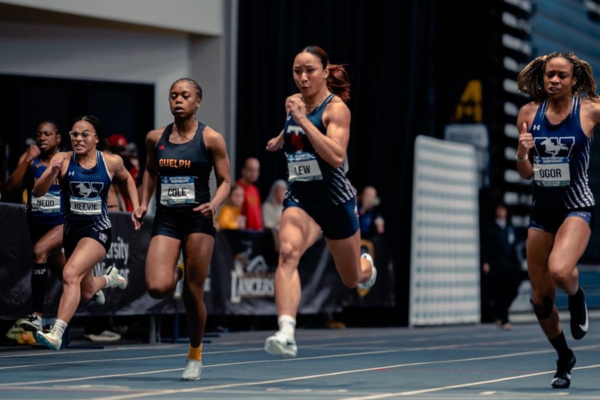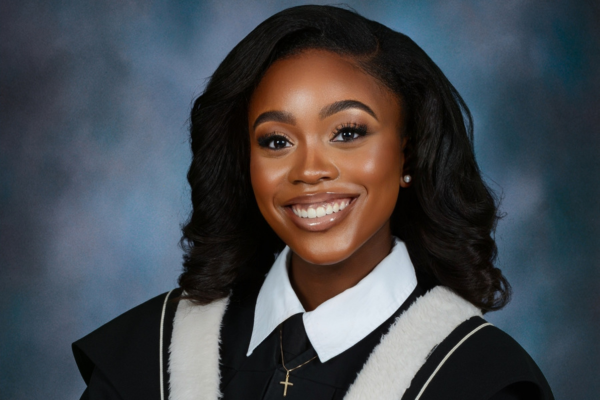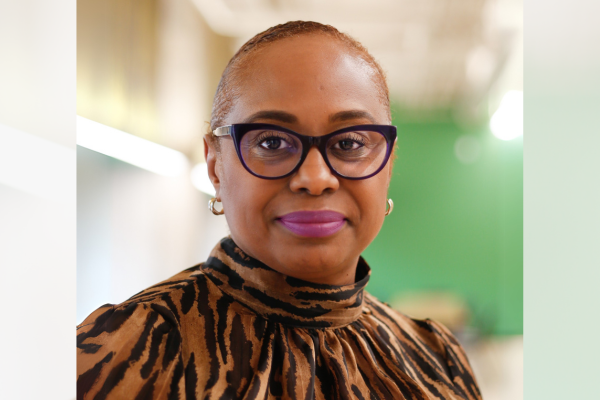KPE student athlete centers movement and leadership in event program for racialized students


For the past six years, Jasmine Lew has balanced a successful athletic career, studies and volunteering roles. In 2020, Lew added yet another role to that list as the current lead captain of the University of Toronto Varsity Blues Track & Field team.
Juggling it all sparked questions on how to navigate leadership – and the body’s response in the process.
“In kinesiology, we often think about the body as something to train and prefect. This often ignores the fact that our bodies are centered in experiences of race, gender and sexuality,” says Lew, a master’s student at the Faculty of Kinesiology and Physical Education (KPE).
“It’s important to recognize the body as the site where subjective experiences emerge from.”
Lew is the coordinator of Learning to Lead (LTL), a movement experience program launched in 2021 for undergraduate and graduate racialized students at the University of Toronto who identify as women. LTL explores the relationship between identity, recreational movement and leadership to help develop BIPOC women’s health and wellness.
The program, which recently wrapped its latest sessions at Hart House, features instructor-led workshops that merge movement and discussion periods to build confidence, facilitate self-care and talk about anti-racism.
The project is one of many underway at the Indigeneity, Diaspora, Equity and Anti-racism in Sport (IDEAS) Research Lab. Founded by Janelle Joseph, an assistant professor at KPE, the IDEAS Research Lab is Canada’s first research laboratory devoted to issues of race and movement cultures.
LTL is funded by the Women’s Athletic Association Trust, an endowed fund established for the development and enhancement of women’s athletics at the University of Toronto. Along with the IDEAS Research Lab, its latest eight-week series of sessions were presented by the Well Being Collective, an event series which uplifts Black excellence at Hart House.
Workshops adopt an embodied decolonial thought approach, which recognizes the role of the body in processing the intersections of identities and oppressions that shape one’s experiences.
Based on discussions, participants report that confidence, community and resilience are top priorities for their personal and professional development to center well-being.
“Taking the idea of embodiment allows us to understand what it means to move confidently, so that when you enter certain spaces, you have that knowledge of what your body feels in places of confidence, trust or self-advocacy,” Lew says.
Participants have also discussed the pressures of achieving excellence as racialized students.
Lew says that when it comes to student success, shifting away from frameworks that prioritize transactional goals, which could come in forms of extensive studying to training to reach fitness goals, is important to avoid burnout.
“Often, not only do you have to be the best in your class, but you also must live up to it in your work,” Lew says. “The workshops allowed for collective wellbeing as a community.”
Using interviews from LTL’s voluntary research component, Lew, who has recently accepted a PhD offer from KPE, will write a thesis about decolonial embodiment frameworks in kinesiology to spotlight racialized women’s experiences in navigating various physical cultures. This includes carrying the responsibility of educating colleagues about bias and racism.
Next year, the LTL program will continue for students to think about dialogue and relational movement. The IDEAS Research Lab will be sharing this work through three Black-led, collaborative conferences devoted to decolonization and embodied explorations of difference, ubuntu (togetherness) and healing.
“With LTL, we continue to explore the question, ‘how do we think, lead, and know from and with the body?’” Lew says.







